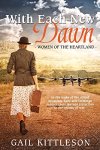After nearly 20 years of journaling, I realized that everyone should be doing this one thing

I have been journaling for years.
There is a box in my office full of journals I have had since 2004. That’s right, nearly 20 years of journals. They have my ideas and worries and capture the events that have gone on in my life over the years.
And I am not done yet.
I have found there to be an immense power in journaling. It has helped me find clarity and emotional stability and even solve problems. Most of all, it is like having a space to remove what bothers me and listen for what is good.
“Journaling is like whispering to one’s self and listening at the same time.”
– Mina Murray in Bram Stoker’s Dracula
In a world where technology is taking over and life is becoming more fast-paced, journaling remains a timeless and effective tool for self-improvement.
Whether kept in a handwritten notebook, a digital file, or even a specialized app, journaling gives people a distinct place to think, process, and learn essential life lessons.
This article examines the many advantages journaling offers to one’s mental, emotional, and even physical health and its transformational potential.
A Personal Journey
“Journal writing, when it becomes a ritual for transformation, is not only life-changing but life-expanding.” — Jen Williamson
Journaling is fundamentally a very personal process. It offers a secure space where people can freely share their ideas, emotions, and experiences without fear of rejection.
People can externalize their innermost ideas and make sense of complex emotions and life’s threads when they put pen to paper or fingers to keys.
Action Step: Set aside three to five minutes daily to journal. Let your thoughts run freely onto the pages while you write, free from self-censorship or criticism.
Emotional Release and Stress Reduction
“Journaling is like a whisper to the soul, an emotional release that heals and rejuvenates.” — Mari L. McCarthy, Heal Yourself with Journaling Power
The capacity of journaling to act as a channel for releasing emotions is among its most obvious advantages.
Writing about difficult situations, annoyances, or fears can be therapeutic and an excellent way to release bottled-up feelings. Research has indicated that this procedure can lower stress levels, elevate mood, and enhance general well-being.
Action Step: Set aside a specific area in your journal for writing about your feelings. Use this area to release tension or emotional weight, permitting oneself to let go.
Clarity and Problem Solving
“Journaling is the first step to self-discovery, and self-discovery is the key to clarity.” — Darryn Kirschner
Moreover, journaling is an effective method for problem-solving and clarity. Writing helps people arrange their ideas and consider other viewpoints when faced with tough choices or uncertainties.
Solutions frequently become more evident during this process, and people feel more empowered as they understand they can overcome obstacles.
Action Step: Spend some time outlining the benefits and drawbacks of any difficult decision you are faced with. Keep a notebook to record your observations and brainstorm ideas from many perspectives.
Tracking Personal Growth
“Your journal is like a compass; it may not point north, but it will guide you to where you need to go.” — Jessica de la Davies
Maintaining a journal offers concrete documentation of one’s evolving personal development. Reviewing previous postings, people can recognize trends, reoccurring themes, and accomplishments.
This backward-looking viewpoint emphasizes the importance of continuous self-improvement by fostering a sense of continuity and development.
Action Step: Designate a particular day of the month to review your journal entries. Make a note of your progress, pinpoint your areas for growth, and decide on new objectives for the next month.
Enhanced Creativity and Self-Expression
“Journaling opens the door to your creative mind, inviting it to dance on the pages of your soul.” — Alexandra Elle
Beyond its therapeutic advantages, journaling can foster self-expression and creativity. People can freely explore ideas, express dreams, and develop a closer relationship with their inner selves by writing in journals.
Journaling’s unrestricted format fosters an abundance of creativity that can be utilized for creative projects, problem-solving, or self-exploration.
Action Step: Set aside time in your journal for artistic expression. Compose poetry, sketch, or experiment with any creative medium that speaks to you.
Final Thoughts on Journaling
Amidst the hectic pace of contemporary life, journaling remains a potent and easily attainable method for personal development.
Journaling opens people’s potential and provides a route to self-discovery, emotional release, and improved well-being through its therapeutic, contemplative, and artistic aspects.
The straightforward practice of writing continues to be a timeless companion as we traverse the complexity of our lives, leading us toward self-awareness and transformation.
###
The above article was posted by Jackie Houchin.







You must be logged in to post a comment.